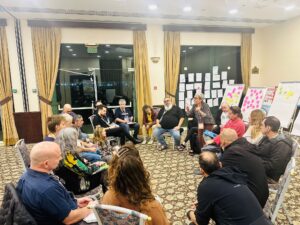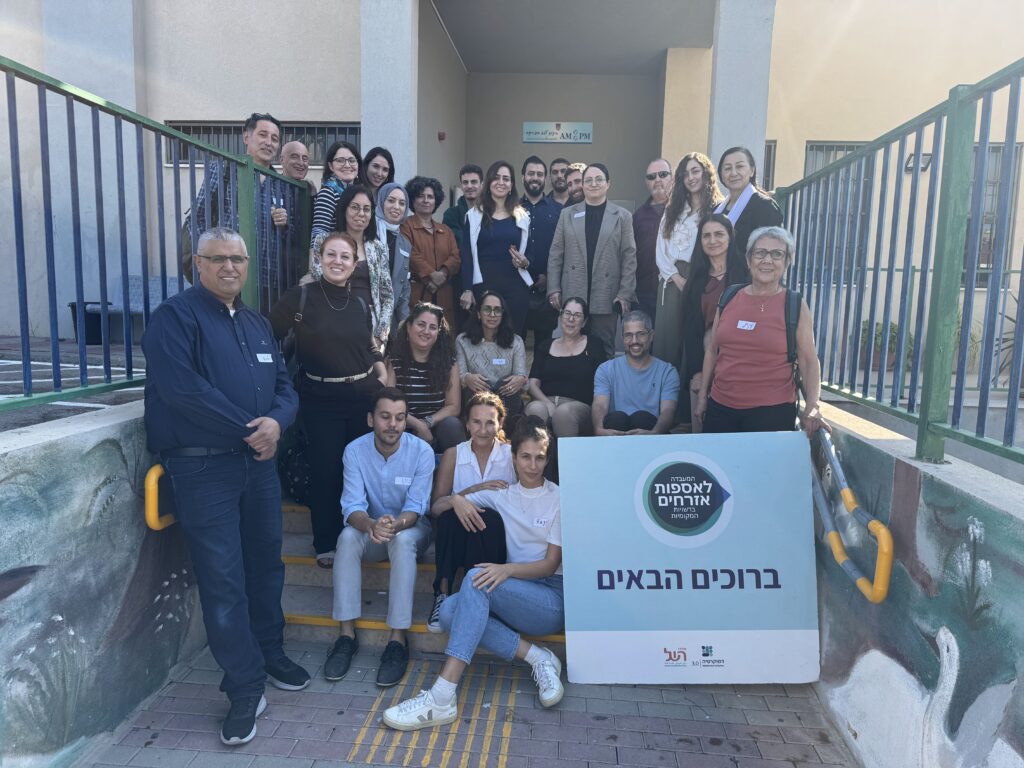Democracy 3.0 –Rebuilding Trust Through Inclusive Decision-Making
Democracy 3.0 was established in 2020 with a vision to promote democratic renewal. Led by the Heschel Center for Sustainability, the initiative recognizes that citizen engagement is essential for ensuring sustainability. Our main tool is the Citizens’ Assembly an innovative practice of deliberative democracy that gives ordinary citizens, selected through representative sampling, a central role in shaping public policy.
This crisis of governance is coupled with a deep public mistrust in the democratic process and institutions, further undermining the ability of governments to solve complex important problems such as the climate and ecological crises.
At the same time, a growing number of experiments are attempting to renew the institutions and the tools of democracy many with a great deal of success by increasing the power of citizens at large to participate and influence decision making processes, on local and national levels.
These new models of participatory and deliberative democracy represent a turning point in the theory and practice of democracy. They are dedicated to strengthen work for the common good, and infuse the vital inputs of citizens’ wisdom and experience at the heart of the policy making and legislative processes.

Why Now?
In an era of growing distrust in government and increasing polarization between different segments of society, we need to redesign democratic institutions and processes for the 21st century. The goal is to increase participation and engagement of citizens in governance.
What are Citizens' Assemblies?
Citizens’ Assemblies transfer power from politicians back to citizens through sortition randomly selecting participants from the general population. Participants are deliberately chosen to mirror the population across gender, location, age, income, education, and religion, ensuring genuine inclusion of all voices, especially those typically marginalized in traditional political processes.
Through deliberation and participation, citizens work together on controversial public issues, learning from experts and stakeholders with diverse perspectives to reach broad consensus. This inclusive process builds public trust by demonstrating that ordinary citizens can make informed, thoughtful decisions when given proper information and structured dialogue.
When assemblies reach evidence-based recommendations, they present them in a report to relevant authorities with the expectation that all recommendations will be seriously reviewed, considered and ideally implemented.This approach creates trust through inclusion, showing that democracy works best when all citizens have an equal voice in shaping policies that affect their lives, while exploring new forms of democratic governance that prioritize collective problem-solving over partisan politics.
This approach creates trust through inclusion, showing that democracy works best when all citizens have an equal voice in shaping policies that affect their lives, while exploring new forms of democratic governance that prioritize collective problem solving over partisan politics.

Why Democracy 3.0?
Like any software, democracy also needs occasional updates. Ancient Greece had Democracy 1.0, the 19th century brought Democracy 2.0. We’re aiming for a “new operating system for democracy”, not just updates to the existing system. And the process doesn’t end there, after 3.0 comes 3.1.
What We've Accomplished
• First Citizens’ Assembly in Israel in 2022-(Kiryat Tivon) focused on waste reduction
• Created the Lab for Citizens’ Assemblies to equip leaders from local authorities with the skills to convene inclusive, citizen-driven assemblies.
• Trained leaders from 18 local authorities – Jews, Muslims, Christians, and Druze, religious and secular
• Facilitated 6 Citizens’ Assemblies in 2025- in various municipalities during 2025: Eilat, Jatt, Ra’anana, Kfar Saba, Bnei Shimon Regional Council, and Beit Jann
• Developed Professional Capacity Building Infrastructure with 22 trained facilitators across 6 facilitation teams
• Launched Cohort 2 of the Lab for Citizens Assemblies with leaders from ~22 local authorities, including civil society representatives
Our mission is to make Citizens’ Assemblies an accessible tool for government bodies, so ordinary citizens become partners and influencers in shaping public policy at both national and local levels.
Visit Democracy 3.0 for further information.
